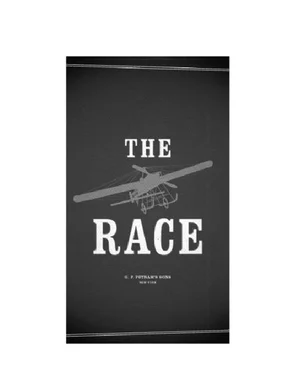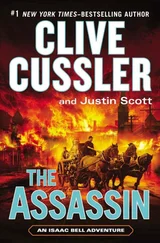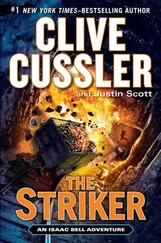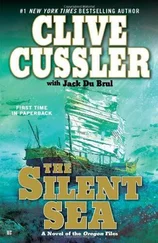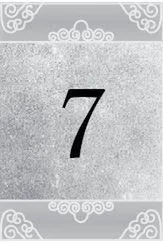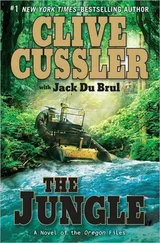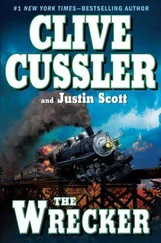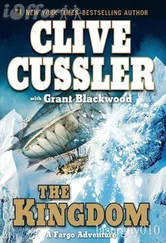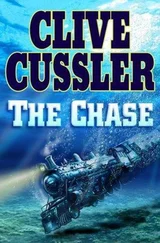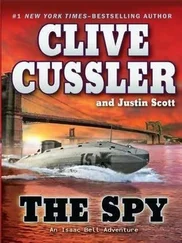Clive Cussler - The Race
Здесь есть возможность читать онлайн «Clive Cussler - The Race» весь текст электронной книги совершенно бесплатно (целиком полную версию без сокращений). В некоторых случаях можно слушать аудио, скачать через торрент в формате fb2 и присутствует краткое содержание. ISBN: , Жанр: Детектив, на английском языке. Описание произведения, (предисловие) а так же отзывы посетителей доступны на портале библиотеки ЛибКат.
- Название:The Race
- Автор:
- Жанр:
- Год:неизвестен
- ISBN:978-1-101-54773-1
- Рейтинг книги:3 / 5. Голосов: 1
-
Избранное:Добавить в избранное
- Отзывы:
-
Ваша оценка:
- 60
- 1
- 2
- 3
- 4
- 5
The Race: краткое содержание, описание и аннотация
Предлагаем к чтению аннотацию, описание, краткое содержание или предисловие (зависит от того, что написал сам автор книги «The Race»). Если вы не нашли необходимую информацию о книге — напишите в комментариях, мы постараемся отыскать её.
The Race — читать онлайн бесплатно полную книгу (весь текст) целиком
Ниже представлен текст книги, разбитый по страницам. Система сохранения места последней прочитанной страницы, позволяет с удобством читать онлайн бесплатно книгу «The Race», без необходимости каждый раз заново искать на чём Вы остановились. Поставьте закладку, и сможете в любой момент перейти на страницу, на которой закончили чтение.
Интервал:
Закладка:
Isaac Bell picked himself up and stormed back into the street. Flames were leaping from the newspaper depot. The wagons had been tumbled on their sides, their horses staggering on shattered legs. The street was filled with broken glass and burning paper. Bell looked for the newsboys. Three were huddled in a doorway, their faces white with shock. Three more were sprawled lifeless on the sidewalk. The first he knelt by was Wally Laughlin.
COME, JOSEPHINE IN MY FLYING MACHINE.
BY ALFRED BRYAN amp; FRED FISCHER
Oh! Say! Let us fly, dear
Where, kid? To the sky, dear
Oh you flying machine
Jump in, Miss Josephine
Ship ahoy! Oh joy, what a feeling
Where, boy? In the ceiling
Ho, High, Hoopla we fly
To the sky so high
Come Josephine, in my flying machine,
Going up, she goes! up she goes!
Balance yourself like a bird on a beam
In the air she goes! There she goes!
Up, up, a little bit higher
Oh! My! The moon is on fire
Come, Josephine in my flying machine,
Going up, all on, Goodbye!
BOOK ONE

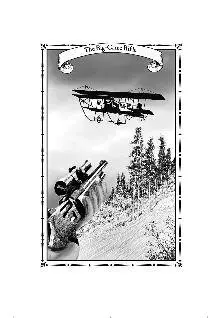
1
The Adirondack Mountains, Upper New York State
1909
MRS. JOSEPHINE JOSEPHS FROST – a petite, rosy-cheeked young woman with a tomboy’s pert manner, a farm girl’s strong hands, and lively hazel eyes – flew her Celere Twin Pusher biplane eight hundred feet above the dark forested hills of her husband’s Adirondack estate. Driving in the open air, in a low wicker chair in front, she was bundled against the cold headwind in padded coat and jodhpurs, a leather helmet and wool scarf, gloves, goggles, and boots. Her motor drummed a steady tune behind her, syncopated by the ragtime clatter of the drive chains spinning her propellers.
Her flying machine was a light framework of wood and bamboo braced with wire and covered with fabric. The entire contraption weighed less than a thousand pounds and was stronger than it looked. But it was not as strong as the violent updrafts that cliffs and ravines bounced into the atmosphere. Rushing columns of air would roll her over if she let them. Holes in the sky would swallow her whole.
A gust of wind snuck up behind and snatched the air that held her wings.
The biplane dropped like an anvil.
Josephine’s exuberant grin leaped ear to ear.
She dipped her elevator. The machine pitched downward, which made it go faster, and Josephine felt the air lift her back onto an even keel.
“Good girl, Elsie!”
Flying machines stayed up by pushing air down. She had figured that out the first time she left the ground. Air was strong. Speed made it stronger. And the better the machine, the more it wanted to fly. This “Elsie” was her third, but definitely not her last.
People called her brave for flying, but she didn’t think of herself that way. She just felt completely at home in the air, more at home than on the ground where things didn’t always work out the way she hoped. Up here, she always knew what to do. Even better, she knew what would happen when she did it.
Her eyes were everywhere: glinting ahead at the blue mountains on the horizon, glancing up repeatedly at the aneroid barometer that she had hung from the upper wing to tell her her altitude, down at the motor’s oil pressure gauge between her legs, and searching the ground for breaks in the forest big enough to alight on if her motor suddenly quit. She had sewn a ladies’ pendant watch to her sleeve to time how much gasoline she had left. The map case, and compass ordinarily strapped to her knee, were back at the house. Born in these mountains, she steered by lakes, railroad tracks, and the North River.
She saw its dark gorge ahead, so deep and sheer that it looked like an angry giant had split the mountain with an ax. The river gleamed at the bottom. A break in the trees beside the gorge revealed a golden meadow, the first sizable opening she had seen since she had taken to the air.
She spied a tiny splash of red, like a flicker’s red crest.
It was a hunting hat worn by Marco Celere, the Italian inventor who built her flying machines. Marco was perched on the cliff, rifle slung over his back, scanning for bear through field glasses. Across the meadow, at the edge of the trees, she saw the hulking silhouette of her husband.
Harry Frost raised his rifle and aimed it at Marco.
Josephine heard the shot, louder than the motor and drive chains clattering behind her.
HARRY FROST HAD A WEIRD FEELING he had missed the Italian.
He was a seasoned big-game hunter. Since retiring rich, he had shot elk and bighorn sheep in Montana, lion in South Africa, and elephants in Rhodesia, and he could have sworn the bullet had gone high. But there was his wife’s swarthy boyfriend squirming on the edge of the cliff, hit but not dead.
Frost levered a fresh.45-70 shell into his Marlin 1895 and found him in the scope. He hated the sight of Marco Celere – oily black hair brilliantined slick to his skull, high forehead like a vaudeville Julius Caesar, thick eyebrows, deep-set dark eyes, waxed mustache curled at the tips like pigs’ tails – and he was taking great pleasure in smoothly squeezing the trigger when suddenly a strange noise clattered in his head. It sounded like the threshing machine at the farm at the Matawan Asylum for the Criminally Insane, where his enemies had locked him up for shooting his chauffeur at the country club.
The bughouse had been worse than the most monstrous orphanage in his memory. Powerful politicians and high-priced lawyers claimed credit for springing him. But it was only right to let him out. The chauffeur had been romancing his first wife.
Unbelievably, it was happening again with his new bride. He could see it written on their faces every time Josephine hit him up for more dough to pay for Marco’s inventions. Now she was begging him to buy the Italian’s latest flying machine back from his creditors so she could win the Atlantic – Pacific Cross-Country Air Race and claim the fifty-thousand-dollar Whiteway Cup.
Wouldn’t that be swell? Winning the biggest air race in the world would make his aviatrix wife and her inventor boyfriend famous. Preston Whiteway – the snoot-in-the-air, born-with-a-silver-spoon-in-his-mouth San Francisco newspaper publisher who was sponsoring the race – would make them stars, and sell fifty million newspapers in the process. The chump husband would be famous, too – a famously cuckolded, fat old rich husband – the laughingstock of all who despised him.
Rich he was, one of the richest men in America, every damned dollar earned himself. But Harry Frost wasn’t old yet. A little over forty wasn’t that old. And anyone who said he was more fat than muscle hadn’t seen him kill a horse with a single punch – a trick he had performed famously in his youth and lately had made a birthday ritual.
Unlike the treachery with the chauffeur, this time they wouldn’t catch him. No more flying off the handle. He had planned this one down to the last detail. Savoring revenge, going about it like a business, he had resurrected his formidable talents for management and deception to lure the unsuspecting Celere on a bear hunt. Bears couldn’t talk. There’d be no witnesses deep in the North Country woods.
Convinced he had shot higher than he meant to, Frost aimed low and fired again.
– -
JOSEPHINE SAW CELERE whiplashed from the cliff by the force of the bullet.
Читать дальшеИнтервал:
Закладка:
Похожие книги на «The Race»
Представляем Вашему вниманию похожие книги на «The Race» списком для выбора. Мы отобрали схожую по названию и смыслу литературу в надежде предоставить читателям больше вариантов отыскать новые, интересные, ещё непрочитанные произведения.
Обсуждение, отзывы о книге «The Race» и просто собственные мнения читателей. Оставьте ваши комментарии, напишите, что Вы думаете о произведении, его смысле или главных героях. Укажите что конкретно понравилось, а что нет, и почему Вы так считаете.
